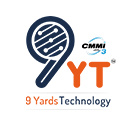
As the world evolves, IoT has become an integral part of our lives. But with the pandemic, the healthcare industry has come a long way from waiting for a doctor’s call physically in hospitals to just video-calling doctors for consultation by sitting in your comfort zones. Nowadays, the healthcare sector with technology has revamped patient care multifariously.
The ultramodern medical system offers users several benefits, such as more accurate data, security, reduced costs, and patient convenience. In addition, especially with the benefits and technology of RFID, hospital workflow and patient safety are easily managed.
What IoMT means?
IoT’s implementation in the healthcare industry is called IOMT (Internet of Medical Technology). The IoMT amalgamates medical equipment, software applications, health systems, and services. It enables the patient to transfer medical data through the Internet, which can aid in reducing hospital visits. Hence it offers a patient-centric approach.
Internet of Medical Things trends streamline medical workflow management as patient care has enhanced both in remote locations and inside facility walls.
Here are some stats that prove how the healthcare industry has become a digital health leader vis-a-vis IoMT and the increasing popularity of healthcare software development services:

- Frost and Sullivan’s analysis cites that the global IoMT Market was $22.5 billion, and in 2021, it was expected to grow to 72.02 billion at a CAGR of 26.2%.
- The (IoMT) Market worldwide, according to All The Research, was valued at USD 44.6 million (2018) and is projected to reach USD 254.6 million (2026), growing at a CAGR of 24.4% during the forecast period (2016-2026).
- Business Research Company cites the global medical devices market is expected to grow at a CAGR of 6.1% from 2021 and reach $603.5 billion by 2023.
- According to Statista, the digital health market is predicted to reach around 660 billion dollars by 2025.
- Deloitte report cites that there are 500,000 medical technologies available.
- There 88% of care providers invested in remote monitoring.
- The above stats show how IoT in the healthcare industry will play a prominent role.
- How is the Internet of Things Impacting the Healthcare Industry?
The IoT has a significant role to play in the healthcare sector. Medical accessories like smart devices, medical monitors, smart pills, wearables, kiosks, telehealth, etc., are implemented by almost 60% of healthcare organizations worldwide. Some of the benefits are below mentioned.

1. Data-Driven Decisions
With the intervention of IoT in medical devices and frameworks, the process of getting correct analysis improved, resulting in accurate data research and keeping up with ultramodern practices. One of the most prominent features of IoT in healthcare is that doctors can now monitor their patients remotely in real-time and provide reminders for taking medications.
IoT intervention in medical businesses aid administrators and medical faculty in making informed decisions through data processed that benefit patient and digitizes the healthcare sector.
2. Smart Healthcare Industry Appliances
The Internet of medical things appliances helps to track the medical components in a manner that was difficult a couple of years ago. Be it offering inventories or monitoring health conditions. These devices can assist in achieving medical objectives by fostering a favourable patient experience.
Smartwatches and pillboxes are some well-known examples of this. Checking biometrics is done with the help of the former, and reminding patients to take medicines is done by the latter. Expanding the accuracy of diagnosis and therapies is possible thanks to smart IoMT in medical devices. In addition, providing healthcare mobility solutions via home-based gadgets greatly aids disabled patients.
3. Reduced Costs
Lowered cost is presumably the most significant benefit of the Internet of Things in medical care. IoT medical care solutions and associated medical gadgets monitor health in real time so patients can visit medical experts/ doctors less often. Generally, this diminishes costs because of fewer hospital stays and readmission.
4. Improved Efficiency
With several limitations encompassing the medical world, IoMT has the potential and possibility to assist with improving things. Let’s Take the example of True-Access, an app built by Koombea that allows patients and medical staff to travel in areas endorsed in medical facilities without requesting permission or mentioning.
It is possible due to a smart card that allows access while offering numerous other benefits. The information additionally assists in keeping track of practical matters. Furthermore, it improves security and makes better administration decisions because of the accessible data.
5. Global Assistance
Smart medical gadgets compile and transfer essential health information, including, but not restricted to, blood pressure, pulse rate, oxygen and glucose levels, ECGs, and so forth. The doctors can access the information stored in the cloud globally.
Moreover, the doctors can view the information from a device with the application installed to give a particular medical counsel and aid patients regardless of their area. Thus, in the end, we get enhanced medical services and benefits notwithstanding the place and time.
6. Improved Patient Experience
Patients associated with the medical Internet of Things in the healthcare industry wind up having a superior experience, as they are more occupied with their therapy. In addition, smart devices in medical services give essential information about the patient so that doctors can diagnose health problems with higher precision.
Medical care offers unlimited potential outcomes. It helps in making medical care highly accessible and providing doctors with valuable knowledge and patient medical history. Thus it offers patients one of the best medical treatments remotely.
Types of Internet of Medical Things Market
1. On-Body Segment
The market can be categorized as consumer wearables and medical or clinical-grade wearables. Consumer health wearables comprise bands, activity trackers, personal fitness devices, wristbands, and sports watches. The apps can be regulated by the authority and endorsed by experts based on the information obtained by consumer studies or clinical validation.
2. In-Home Segment
As we know, IoT is not restricted to the healthcare industry but several other industries. The home segment includes the telehealth virtual visits feature, remote patient monitoring, and personal emergency system. The patient can easily and quickly receive medical care in an emergency through this package. In addition, to slow down chronic disease progression, RPM monitors the physiological parameters of the patients to provide long-term care.
3. Community Segment
Mobility service, emergency service, kiosks, Point of care devices, etc., are some of the components of these segmented sensors and IoMT tools in healthcare delivery and shipment, which measures humidity, shock, and temperature is an example of IoMT of logistics management.
4. In-Clinic Segment
The devices used for clinical or administrative functions, either in the telehealth model or clinic, are included in this segment of IoMT. Unlike the community segment, the healthcare professional can use the devices remotely while the patient is located. Example: Rijuvens clinic is a platform where physicians can access patients anytime.
5. In-Hospital Segment
This segment includes patient flow management, assets management, inventory management, and environment and energy monitoring. The best example of this segment is the Myway app, which guides the patient to the hospital using the shortest route.
Potential Of The Internet Of Medical Things In The Healthcare Industry
The perks of IoMT are that it offers fewer mistakes and precise diagnoses at an economical cost. In addition, the IoT with mobile applications allows patients to transport healthcare data to doctors, which helps monitor chronic diseases.
E.g., Fitbit can track the heart rate and accelerometer data of the patient simultaneously and accurately, which allows it to monitor patients suffering from ischemic heart diseases.
The IoMT revolutionizes the healthcare system by improving the patient experience and eliminating unnecessary visits to hospitals or clinics. Furthermore, a smart pill containing a microscopic sensor improves drug management and patients. It transmits data via connected devices to health professionals. You can also read how to build a medical startup, the challenges to avoid, and the best markets to launch your healthcare products.
Now you know the reason behind the increasing demand for healthcare apps and healthcare app developers.
Pairing Thoughts!
COVID-19 has revolutionized industries with technological disruption in the current times. No doubt, with the pandemic, a new slate of challenges came up, but at the same time, it provided immense opportunities for innovation in the Internet of Things in the healthcare sector. The IoT in the Medical industry has enabled smooth operations and processes that amazingly improved patient experience, similar to the streamlining of the manufacturing process for better operational efficiency. While the providers have gained accurate data, diagnoses, and efficient time management, patients benefit from convenience, higher engagement, and fewer physical medical visits.
If you are amazed about this field and its functions, add value to your healthcare software development services and solutions with our healthcare app testing company. You can connect with our experts anytime if you want an intellectual consultation. Being the top healthcare application testing company, we are happy to spread flawless technology worldwide.




